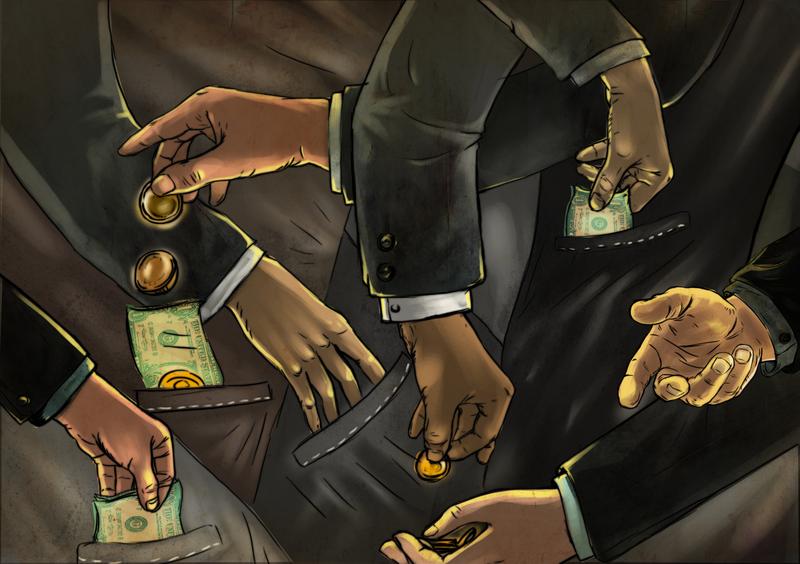“You must understand that there are two ways of contending, by Law, and by force: The first is proper to men; the second to beasts; but because many times the first is insufficient, the recourse must be had for the second.” – The Machiavellian and the Defenders of Freedom-James Burnham.
Reading and watching daily news about the scourge of citizens who have resorted to the political elite for the injustices they face makes you wonder what happens to the three-legged assumptions of the state: the Executive, the Parliament and the Judiciary. Specifically, the Judiciary part.
When few men and women from the political class rise as the arbiters of law and justice, one must also contend with the end of democracy. Humans’ fundamental instinct to misapply power is natural, and the Judiciary is there to be a guiding star in mitigating this. However, when such a fundamental institution is scandalized with corruption and hijacked by the political class for their publicity ends, society stands to suffer.
Read Related: After Multiparty Democracy Fails, It’s Time to Reset the Button
Currently, there isn’t a clean separation of power among these entities. In a democratic country that spends ungodly amounts of time marketing itself as ‘democratic’, one would have expected that the judiciary’s activities would be left to it and not left to presidential appointees who become lawgivers and lawmakers.
Such an arrangement works only if Tanzania wants to be an authoritarian state. Otherwise, a strong Judiciary is a desirable and vital institution in our country. As citizens, we owe it to at least demand it and protect it when the few (but powerful) attempt to undermine it.
It is a fundamental error to assume that those entrusted with power will not misuse it. Those in power positions will not want a strong constitution or judiciary. They fear it will end their powers and privileges and circumvent and overly regulate their not-so-democratic actions.
“If our interest is in man as he is on this earth, so far as we can learn from facts of history and experience, we must conclude that he has no natural aspiration for peace or harmony; he does not form states in order to achieve ideally good society, nor does he accept mutual organization to secure the maximum social welfare. But men, and a group of men, do by various means, struggle among themselves for relative increases in power and privileges.” –The Machiavellian and Defenders of Freedom.
The distinctiveness of the Tanzania system is the structure of our government – one aspect of it is the lack of independence of the Judiciary or parliament. Of course, the malice of inept dissents from state lawmakers in the international arena will be a long topic to discuss. The three pillars of the government have merged into one and run a soup of contradictions.
Elements and signs of a failed state or failed state awaiting? You tell me! Nevertheless, institutional decay has been a common phenomenon in our country, whether we want to agree.
The silence about the lack of separation of powers in the government has cascaded from past administrations to current administrations. The political elite assert that the judiciary is corrupt and has failed to ameliorate society’s injustice. So, the political elite has decided that it is their responsibility to correct that.
Quite seductive a proposition it is, though void of the substance of due process. Yet who holds them accountable if they are now the arbiters of law and justice?
What about subjects that require legal interpretations? Does a political appointee garner sufficient competence to deal with such matters? One must willingly suspend disbelief to accept what is happening to the Tanzanian judicial system. It is sad and shameful.
It would not be an exaggeration to argue that our Judicial system is a mere shell of its old self and is currently being exploited by the autocratic cliques for their own ends with no regard for public interests.
It is not like the public opinions of the homo politicus are unknown. And yet, it is hard to reconcile their presumption that they would always be able to identify the public interest and act single-mindedly upon it.
“The philosopher king hypothesis is in full operation in Tanzania today, and one will struggle not to see it in nearly everything going on. One can’t help but wonder whether they will ever grow to face up to Karl Popper’s problem of “what if the elite turns out not to be benevolent Philosopher Kings?”
Even if we agree that our philosopher kings are right, we still need to remember that a surfeit of self-confidence is perhaps understandable in a brilliant politician; however, a presumption of immortality is not. When the philosopher kings meet their fate, as we all will one day, society will still need institutions.
Will it not be madness to assume or to be sure of the complete availability of ‘rational’ philosopher kings? I would rather have strong institutions.
Currently, we must be content with the opportunistic politicians who will exploit the desperate conditions of the people but who choose not to rescue them from the quagmire of destitution or injustice.
The judiciary acts as a check and balance.
Proverbs 21:3


To resolve the judiciary rot we may need to consider experimenting with elected members of judiciary rather than political appointees. That way we will give them security of tenure, that lack of it, explains why they are bootlicking the political class.
In addition, we need to set terms of service not more than 5 years to cement accountability. No renewal if public outcry is directed to any member of the judiciary.
After retirement judicial officers must mot be deployed to executive positions where most of the executive carrot and stick are carefully positioned!
We are coughing too much for these useless judicial officers